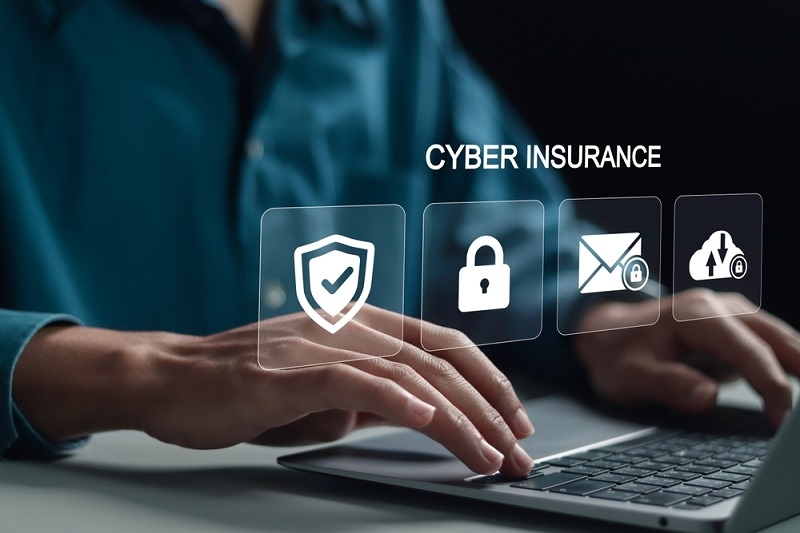
Just think how every day, almost every people send or receive money online, store their personal files in cloud storages, and trust online businesses with their private details. These things can be critical, but in your day to day life, it feels extremely smooth and normal. This is because everything is protected for your safety, however, if a hacker it able to get his hands on this data, the situation can become very risky.
This is exactly the reason you should know what is cyber insurance and why is it essential in 2025?
Cyber insurance is a type of protection that helps people and businesses deal with the financial shock of a cyberattack. Many also call it cyber liability insurance, because it covers the costs linked to digital incidents. To really understand it, one must learn about cyber insurance coverage and see what does cyber insurance cover in practice.
Think about a company that holds thousands of customer records on its system. If hackers steal that data, the company cannot simply ignore the damage. It will face legal complaints, angry customers, and very high costs of repair.
Cyber liability insurance steps in to support the company during such moments. It pays for investigations, customer notifications, legal defense, and even financial settlements. Without this type of support, many businesses would collapse after a single major attack.
This protection is not only for big companies. Small businesses and even individuals who depend on online storage or payment systems can benefit. Cyber liability insurance acts like a financial safety net in a world where no one is safe from online threats.

Cyber insurance coverage is not the same for everyone. Policies differ, but many share common parts that cover the most damaging risks.
Here are some examples of what cyber insurance coverage usually includes:
The cost of notifying customers, investigating the issue, and repairing systems.
If customers take legal action, the policy can cover lawyer fees and settlements.
Some policies cover ransom payments demanded by hackers to release stolen data.
If an attack shuts down operations, the insurance may cover lost income.
The cost of rebuilding trust through public relations or communication campaigns.
In simple terms, cyber insurance coverage gives people and businesses a set of tools. These tools help them recover quickly and limit the damage after a cyber incident.
To understand the true value of this protection, let us look at real scenarios.
Imagine a retail business that stores thousands of credit card numbers. Hackers steal this information, and suddenly the company must notify every customer, hire investigators, and prepare for lawsuits. Without insurance, the financial weight would crush the business. With cyber insurance, many of these costs are covered.
Now imagine a small online shop that depends on its website for daily income. Hackers launch an extortion attack and block access to the store. They demand money to stop. Without support, the store could close its doors. With cyber insurance, there is financial help to face the demand and restore business.
These situations show the clear answer to what does cyber insurance cover. It covers the real problems that follow cybercrime, problems that can otherwise destroy businesses and individuals.
Cybercrime is no longer a rare event. Every year, attacks become more common and more advanced. Hackers target large companies, but also smaller businesses and even everyday internet users.
Because of this, cyber liability insurance has become more important than ever before. Many industries now require businesses to report data breaches and protect customer details. Without insurance, these rules can become too expensive to handle.
By asking what is cyber insurance and learning what does cyber insurance cover, people prepare themselves for this new reality. Cyber insurance does not stop criminals from attacking, but it helps people recover from the damage.
Must Read: Why Businesses Must Have Parametric Insurance in 2025?
Not every person or business needs the same type of protection. The right policy depends on the risks faced.
For example, a hospital must protect sensitive patient data, while an online store must protect payment details. Both face cyber risks, but their coverage needs will differ.
When choosing cyber insurance coverage, it is important to ask a few simple questions:
Cyber liability insurance should fit the scale and nature of the risks. A well-chosen policy ensures that, when a cyberattack strikes, there is real help available.
Cyber insurance is essential in 2025, but it has its own drawbacks. It cannot stop hackers from using your data and it also does not cover all your losses.
For example, most policies do not cover physical damage caused by cyberattacks. They may also exclude fraud carried out by employees or cases where basic security steps were ignored.
This is why understanding what does cyber insurance cover is so important before buying a policy. Insurance works best when paired with strong cyber safety practices like regular software updates, secure passwords, and staff awareness training.
As technology continues to grow, so will the need for cyber insurance. Many experts believe it will soon become as common as car insurance or health insurance.
Businesses of all sizes will treat cyber liability insurance as a normal part of risk management. Individuals may also begin to buy it more often as personal data theft increases every year.
In the future, the question will no longer be what is cyber insurance. Instead, people will ask which cyber insurance policy is right for me? That change will show how important this type of coverage has become in daily life.
Cyber insurance is one of the most effective ways to handle digital risks. It helps cover the heavy costs of data breaches, extortion, legal cases, and reputation loss. By understanding cyber liability insurance, cyber insurance coverage, and what does cyber insurance cover, people can prepare for the challenges of a connected world with greater confidence.
This content was created by AI